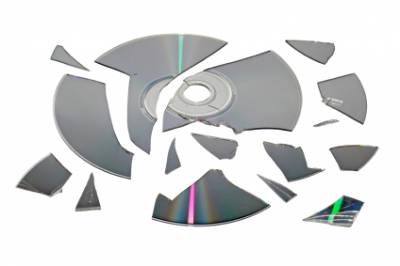3. Use interruptible power supply (UPS).
In the event of an electrical power surge and unstable power supply, which is a quite frequent phenomenon, an UPS can protect your hard drive from being damaged. On top of that, UPS will allow you for a short period of time to continue working on the computer and successfully save the results of your hard work and close operating system properly.
4. Do not forget to backup your data regularly.
The most secure way of reducing the risk of data loss is regular data backup. Important information should be regularly copied onto another data carrier: CD or DVD, hard disk, tape storage and if worse comes to worst on a floppy disk. It is advisable not to keep backup copies in the same room where original data is kept.
5. Use antivirus software.
There are lots of viruses which can easily destroy your data. Installation of antivirus and its regular update will protect your data.
6. Defragment your hard drive regularly.
Regular hard drive defragmentation regroups the data in such a way that files are stored in data sectors sequentially. This operation allows the user not only to increase the speed of disk’s response but also to considerably increase chances of data recovery.
7. Observe safety precautions when using disk tools.
Be careful when using any disk tools, be it tools changing logical structure, storage device diagnostics or data recovery. Make sure that the tool is compatible with your operating system and before using it backup your data to another storage device. Should you have suspicions about hard disk malfunction, never use data recovery programs, it might lead to irreversible loss of data.
If, despite all measures taken the data was lost, turn to the data recovery experts. Insufficient training and inadequate experience in data recovery can only harm the recovery process.





